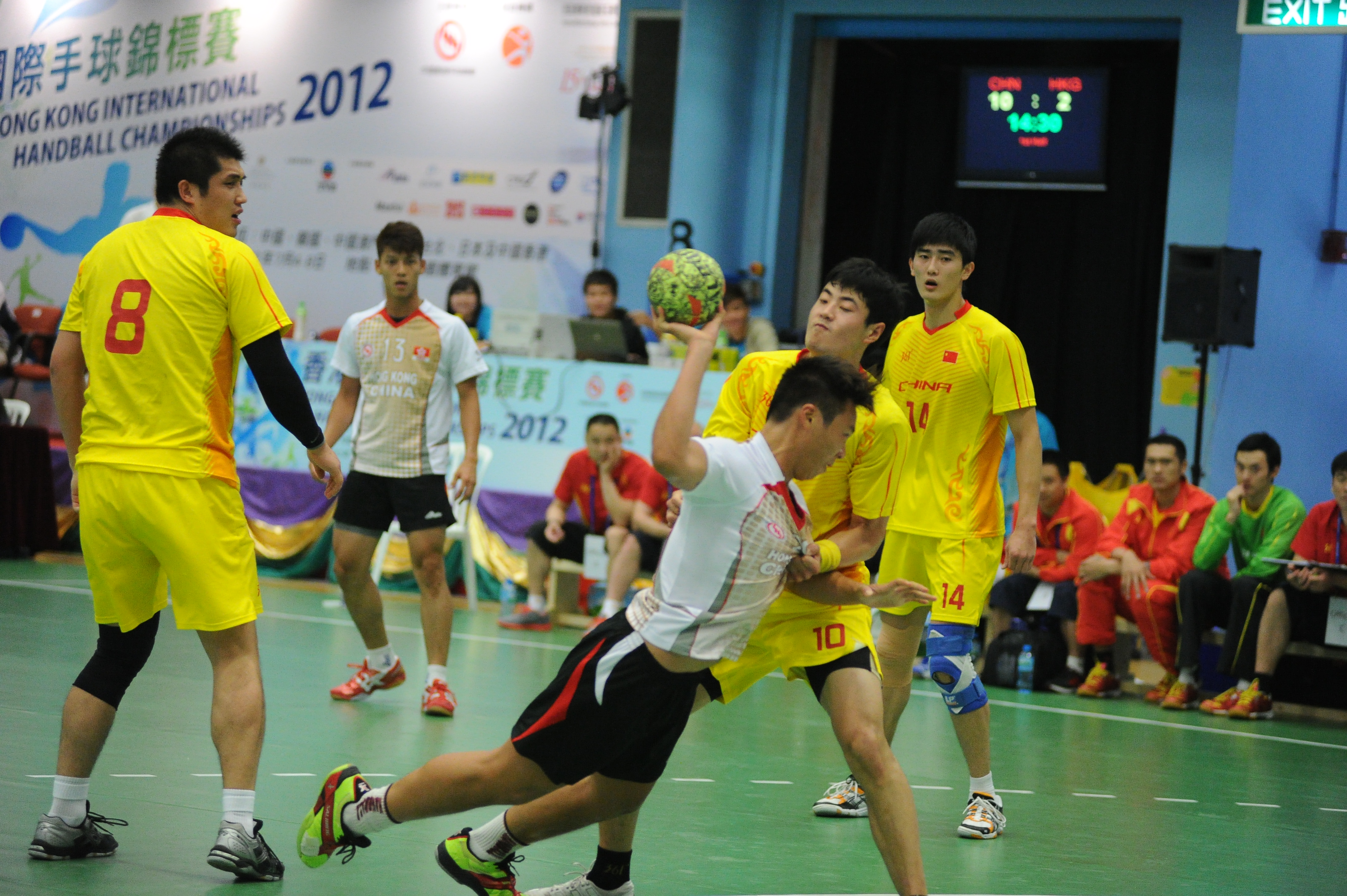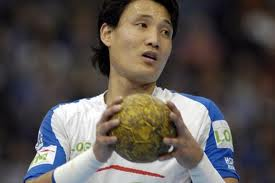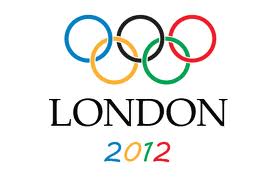
Hong Kong
team taking on China in the Hong Kong International Handball
Championships
Today’s guest columnist is Altay Atli, a lecturer in international relations and economics based in Istanbul, Turkey. Altay is a former handball player, a former handball manager, a former handball journalist and forever, a handball fan. His work involves a considerable amount of travel and the opportunity to see handball played in many parts of the world. Hence, this article on handball in Hong Kong.
Hong Kong appears to be all about skyscrapers, financial centers and noodle shops, yet there are many other faces to the city-state, including its citizens’ keenness on and its government’s support for Olympic sports. Although handball is not a crowd drawer, at least for now, growing interest in our sports makes it likely for Hong Kong to be more visible on the international handball scene in the near future.
Handball arrived in Hong Kong during the early 1970s with students returning home from Taiwan. The league was launched and the national teams were formed in the 80s. It was in this period that both men’s and women’s national teams have competed in the Asian Handball Championship finals, an achievement that could not be repeated after 1989. After a period of hibernation, handball in Hong Kong is now back on the rise. National teams do not make it to the Asian finals, which are significantly more competitive compared to the 1980s, but they are recently obtaining good results in the international events they are taking part. One such event is the National Games of the People’s Republic China, which is kind of mini Olympic games where the provinces of China compete. Hong Kong, as a special administrative region within the People’s Republic, is taking part in these games, and in last year’s version held in Liaoning, the men’s handball team was ranked seventh, an important achievement considering the improving quality of handball in the mainland. The Hong Kong International Championships, held annually since 2001, provides another platform for the national teams to compete against international opponents, and so far strong handball countries such as Germany, Slovenia, Korea, Japan and China, as well as developing ones like Iran, Mongolia and the French region of La Reunion have taken part in this competition, enabling the teams of Hong Kong to gain international experience.
Handball leagues in Hong Kong are well organized providing the athletes with the opportunity to play as many matches as possible. There are currently four divisions in the men’s competition, and three divisions in the women’s, each division being composed of ten teams. A total of seventy teams for a small city-state of the size of Hong Kong is a significant number. Teams are made up of amateur players from Hong Kong, as well as expatriates and exchange students from European countries. Leagues run from October to April, and they are played in multifunctional indoor sports facilities as well as an outdoor court used solely for handball games. Having adequate facilities is important in Hong Kong, where space is one of the most precious commodities.
The Handball Association of Hong Kong, China (HAHKC) is the organization responsible for the development of the sports in the city-state. The association is funded by the government and its plans for the development of handball are based on two main pillars. One is the development of the player base through a systemized and well structured plan for different age groups, and the other is the attraction of larger audiences through beach handball.
The development plan of HAHKC starts with the elementary training program for kids aged 12 and younger, and the intermediate training program for under 15s. Around one hundred school children are enrolled in these programs each year through a scheme financed by the Hong Kong government. Successful athletes are promoted to district programs from where they are selected into the young athletes training program for the age group between 16 and 19. After a competitive process, better players are taken into regional squads, which undertake overseas training camps every year, such as the one in Korea in 2013 and the one in Taiwan in February 2014. These squads form the player base from which the junior and senior national teams are selected.
This hierarchical structure offers a well-designed system for choosing talents and developing capabilities and skills. On the other side of the coin, beach handball is the instrument used to breed interest for the sports among Hong Kong’s citizens. In 2013, Asian Men’s and Women’s Beach Handball Championships were held in Hong Kong, not on the sandy beaches of the Lantau island, but on a sand filled court right at the center of the buzzling town. It was a wise decision by the HAHKC, which chose to take the game to the people. A total of two thousand spectators watched the event, where the men’s competition was won by Qatar, and the women’s competition by Thailand. Hong Kong ranked fifth in both competitions.
This year the team of Hong Kong was invited to the Asian Men’s Handball Championship in Bahrain, but it could not make it there due to financial problems. Similarly, funding is needed for Hong Kong’s handball teams to compete in the XVII Asian Games to be held in Incheon, South Korea this October, but so far prospects seem bleak. HAHKC officials point out that the government’s priority is to finance “sports for all” instead of competitive events. But perhaps, at the current stage of development, this approach serves handball better. Financing young players’ build-up is definitely more crucial for the future of the sports in Hong Kong and in time sponsors can be expected to enter the scene. Until then, Hong Kong needs to continue to implement its development plan and to gain more supporters through attractive events like beach handball. “We want to play more games with teams from other countries” says Chan Ming Hong, sports executive of HAHKC, “we want to learn more.” So far it has been a successfully pursued learning process for the handball community in Hong Kong. Expect them to do more.















